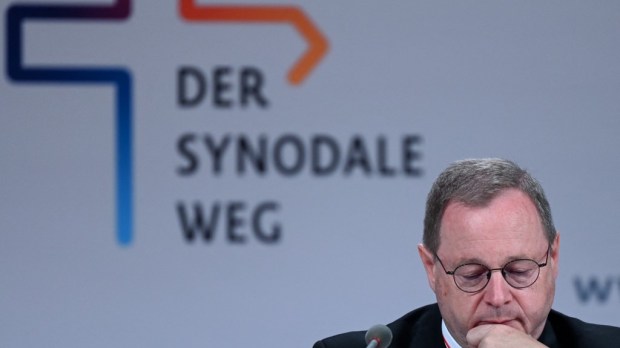Tuesday 26 July 2022
~
1. German insensitivity leads the Church to division
2. The Church and its relationship to democracy
3. Cardinal Nzapalainga: “Religion is not a problem, but the solution”
~
German insensitivity leads the Church to division
In an article published on the website Kath.net, the Vatican expert Peter Winnemöller is very critical of the reactions of German Catholic leaders to the Holy See’s statement on their national synodal path. His anger is directed primarily at the “ridiculous” efforts of the German Bishops’ Conference and the Central Committee of German Catholics (ZdK) to justify their “synodalism.” The warning issued by Rome highlights the risk of heresy and schism, according to the journalist, and is a “clear rejection” of the “synodal council” set up by the German synodal path. He denounces the “devastating coldness” with which Germany has swept aside the criticisms coming from the rest of the universal Church, expressing his sorrow that the Holy See’s statement is also being received in this way. He said he was “very pessimistic” about the future, seeing clear signs of a “dissolution of the Church in Germany.” “The high number of departures and weekly church attendance should give the bishops sleepless nights,” he said, calling for an end to the “synodal puppet theater” and the commitment of “the remaining forces to the new evangelization.”
Kath.net, German
The Church and its relationship to democracy
In a long article published in the American Catholic magazine Commonweal, historian at University of Notre Dame (USA), John McGreevy traces the relationship between Catholics and democracy from the late 1800s to today. He bases himself especially on the work and influence of French philosopher Jacques Maritain (1882-1973), whom he describes as “the most important Catholic intellectual of the mid-20th century.” In the 1920s and 1930s “Catholic theory lagged Catholic practice” and generally many Catholics did not embrace democracy, supporting and negotiating with authoritarian regimes instead. Maritain sought to change this, arguing in 1936 that “the flourishing of the human ‘person’ required respect for her embeddedness in communities such as the family, professions, and churches.” He influenced many important figures including Father Giovanni Battista Montini, the future Paul VI. In the late 1900s there was a shift in fact and Catholics went from “doubting the efficacy of democracy,” to becoming its “guarantors” through Christian Democratic parties, many of which, McGreevy argues, were influenced by Maritain’s ideas. “In the 1950s intellectuals had questioned the capacity of Catholics to sustain democracies. By the 1980s scholars marveled at Catholicism’s role in fostering them,” McGreevy writes. Today, the scholar laments that “too many Catholics have forgotten what Maritain taught them,” as they embrace undemocratic parties and politicians, especially from the populist right.
Commonweal, English
Cardinal Nzapalainga: “Religion is not a problem, but the solution”
The Spanish website Alfa y Omega portrays Cardinal Dieudonné Nzapalainga, Archbishop of Bangui, Central African Republic, as an advocate for interreligious dialogue as a solution to conflict in his country. “My work is to speak of God and to preach peace. That’s what I’m doing in this country,” he says, recounting how he has found strong support among Muslims and Protestants in his city. The crisis in the Central African Republic, he says, is not religious. On the contrary, he says religion is the “solution” to end so many years of “fratricidal violence.” The Cardinal acknowledges that since the Pope’s visit in 2015, the situation has not always improved, but assured that it is now the “right time to look to the future.” “We must roll up our sleeves and work to build peace in our hearts and with others,” he insists.
Alfa y Omega, Spanish

